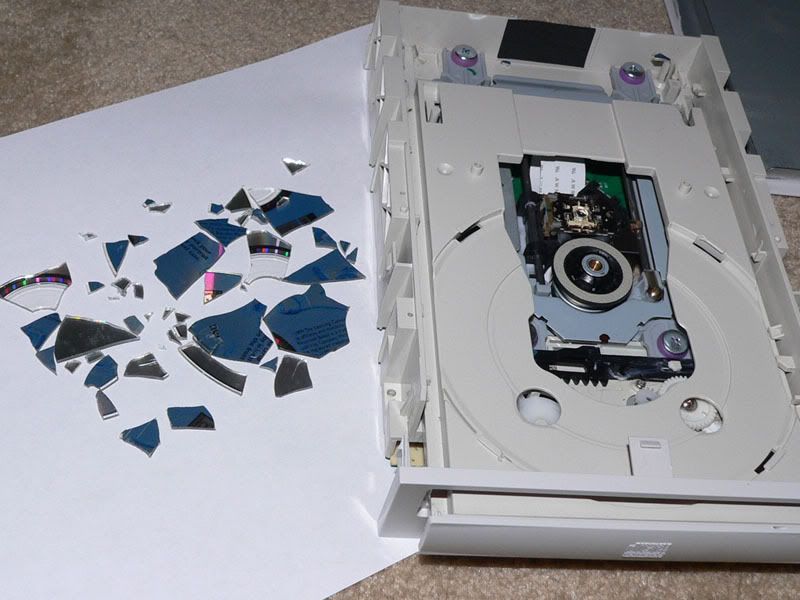drunkbum222
New Member
Now I for one didn't think it was possible at a normal drive speed but yesterday it happened. I was at my friends house playing games when we all just suddenly hear a loud pop. At first I thought his memory just arched or something because he started to lag severely before it went to his desktop, but I knew it couldn't have been that.
He restarted his computer and everything ran fine, He then went back to playing Starcraft, but it couldn't detect the CD in the drive. So he opens it up and to my surprise the CD was shattered into several pieces.
He has a normal CD drive with a normal CD, so I didn't think this could happen. What would cause a drive to reach such intense RPM speeds that it would shatter a CD.
P.S. There was nothing wrong with the cd.
He restarted his computer and everything ran fine, He then went back to playing Starcraft, but it couldn't detect the CD in the drive. So he opens it up and to my surprise the CD was shattered into several pieces.
He has a normal CD drive with a normal CD, so I didn't think this could happen. What would cause a drive to reach such intense RPM speeds that it would shatter a CD.
P.S. There was nothing wrong with the cd.

